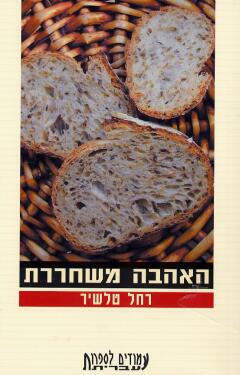
Love Macht Frei
Talshir’s novel offers a hitherto unheard statement. Holocaust survivors, who are now parents and grandparents, but most of whom were teenagers “back then”, did not tell the next generation about what happened “there” not only because they wanted to spare them the horrors or because they feared that they would not be believed, but also because they refused to ruin a chapter of their own youth. That youth may have been evil and violent, yet it also contained rare moments of beauty and emotion.
Three Jewish girls experiencing their burgeoning adolescence in all its vital force in the shadow of the chilling events with which they have to cope. The novel is set in Sangomor, a small town on the Polish-Russian border. Pensive and delicate Licki, the daughter of assimilated communists, is busy reading books and following Rosa, her adored rebellious sister; Golda comes from a middle-class family and is a spoilt girl who spends her time practicing the piano and dreaming of becoming a singer; Bella, forceful and beautiful, lives in poverty with her mother and crippled brother and spends her time looking after her brother and cultivating the manners of a desirable woman. The story of the teenage girls enables the author not only to describe how the heroines survive first the ghettos and then the camps, but also provides an unexpected role for the camp’s bunks as the meeting places of first loves. This choice is also responsible for the title of the novel, which expresses subtle defiance: it is not labor that sets us free, but love. In the face of death, love releases the soul from the chains of prison where the monstrous side of human spirit rules.

-
“ The power of this enthralling book is in how it places gentleness where thorns grow to staggering heights. With great wisdom Rachel Talshir felt that this is the last identity card of those in whose pockets all the other documents were burned, and she has imprinted it on the body of the plot. ”
-
“ A very powerful and important book. Let yourself be conquered by this powerful story and read of the power of human contact and authentic emotion. ”
